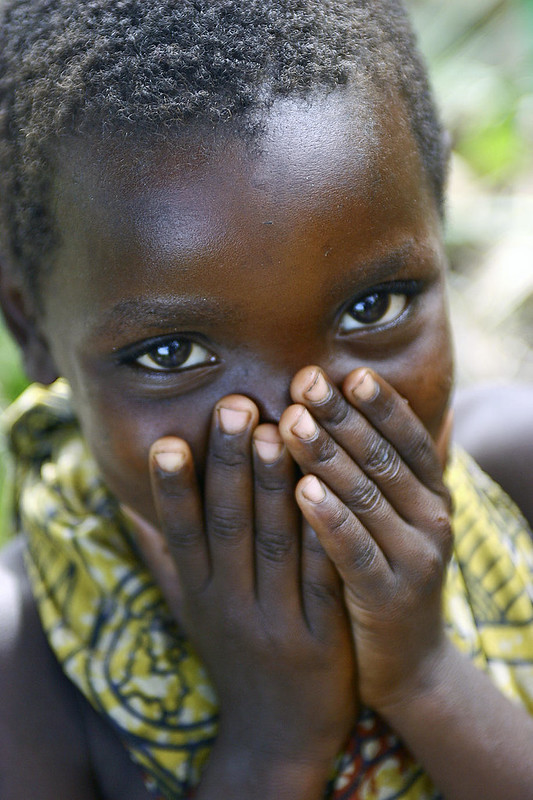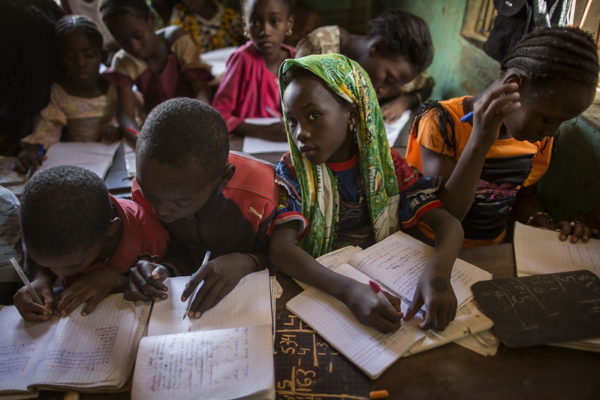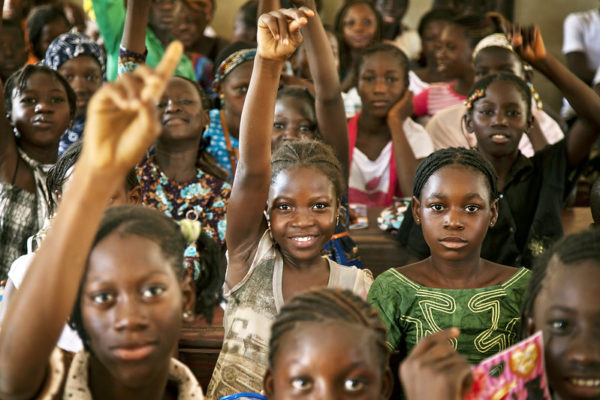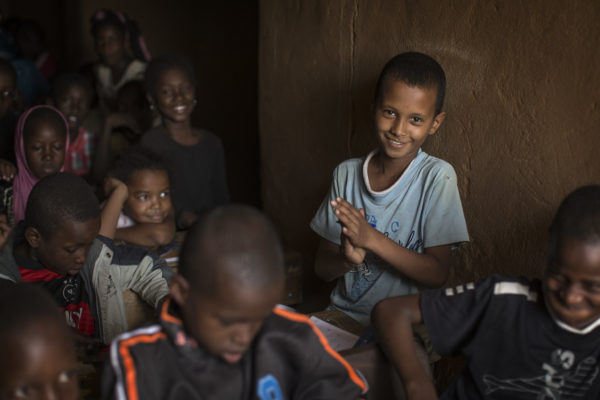Day of the African Child: Empowering communities to break the cycle of injustice and exclusion

On the Day of the African Child, marked today, Interpeace joins the African Union, governments, civil society, the international community, and other stakeholders to reflect on the cycle of injustice and exclusion that children face in Africa.
The Day of the African Child is observed every year on June 16. It was first initiated in 1991 by the Organization of African Unity, now the African Union (AU). This year, 2020, the day is held under the theme “Access to Child-Friendly Justice System in Africa”.
Children in Africa are particularly vulnerable to falling behind in the global development agenda as laid out by the Nations Unies, in the Sustainable Development Goals (SDGs). While there has been significant progress in parts of the continent to advance children’s rights, children growing up in fragile societies or areas affected by violent conflict continue to face inequality, violence, and injustice.
The Day of the African Child is being commemorated this year in the context of the Black Lives Matter protests in the United States of America and the wider fight for equality and justice for all globally. This period of social unrest is fanned by shared rage and distress of black people and descendants of enslaved Africans brought to the English colonies over 400 years ago. The protests, some of which have turned violent, have exposed entrenched systems of injustice and exclusion in societies around the world – and are a stark reminder for everyone to fight inequality and injustice at all times, everywhere, and at different levels.

Photo credits: UN - Marco Dormino
Addressing exclusion of children in Guinea Bissau’s traditional justice systems
Interpeace works with local and international partners, and governments across Africa to achieve the SDG targets with the greatest impact for everyone, including children and young people. In line with SDG Goal 10 - to reduce inequality within and among countries, and Goal 16 – to promote peaceful and inclusive societies, Interpeace implemented a project on traditional justice and youth in Guinea Bissau. Through this project, Interpeace and its local partner Voz di Paz provided informed technical support to UNDP et un UNICEF to support more inclusive traditional justice systems for children and women in Guinea Bissau.
“We rarely take our problems to traditional leaders. We look for the child’s family, because when a child has a problem, traditional leaders do not listen to him/her, only their father is heard, which is wrong because the child can contribute ideas about the problems that concern her/him,” explained Eliezer Monteiro, a young participant in the project from Guinea Bissau’s Children’s Parliament.
Funded by the Peacebuilding Fund (PBF), the project successfully carried out a study on how traditional justice mechanisms or alternative dispute resolution mechanisms operate in the country, with a focus on how women and children are treated by traditional justice systems.
“The child can never be right, in a conflict s/he is involved in, especially if it is a conflict between a child and his or her own parents. For us, a child is a child, s/he has no thoughts,” said Lamine Camará, a Traditional Leader.
The project effectively engaged traditional leaders, members of the community, women and young people from the Children’s Parliament in Guinea Bissau’s three regions of Oio, Gabú and Tombali, to tackle exclusion and injustice that women and young people face in their traditional justice systems.
The communities have become more inclusive to give access and allow meaningful participation for women and children in their traditional justice systems.

Photo credits: UN - Marco Dormino
Supporting integration of Islamic school children in Côte d'Ivoire
Côte d’Ivoire, a country in West Africa, has 1.6 million children not learning in its formal education system. At least 237,000 of them study in local Islamic education structures not recognized by the state. The content of education from these local Islamic schools does not equip children with the skills required to succeed professionally in future, and the certificates obtained, if at all, are not recognized.
“Talibés” - an Arabic word for pupils, have experienced some form of social injustice in the Ivorian society due to the “religious-only” education they receive, which generally gives them access to only a few livelihood opportunities in the informal sector only.
To ensure that all children get access to the state-recognized education curricula and equal access to opportunities, the government of Côte d'Ivoire is working to integrate non-recognized Islamic schools or their pupils into the formal education system.
In 2017, Interpeace and its partner in the country, Indigo Côte d’Ivoire, supported the Ivorian government’s efforts by working with the National Education Ministry to conduct a Participatory Action Research (PAR) on traditional Quranic schools and the talibé children. The research, financed by UNICEF and the European Union (EU), provided important data and recommendations that influenced the Ministry’s strategic and inclusive integration approach.
Interpeace and Indigo Côte d’Ivoire have continued to bring their technical and policy-oriented support to the Ministry within the framework of the development and currently, the implementation of its national strategy on the integration of Islamic school pupils into the formal education system. This contribution will offer greater social and economic integration opportunities to these children in the future, thus allowing them to enjoy equal opportunities with other Ivoirian children. It also supports efforts by the international community to combat child labour and build lasting peace in Africa’s Sahel region, as well as, contribute significantly to SDG Goal 4 that seeks to ensure quality education for all.
Additionally, in October 2019, Interpeace organized the Peace Talks, for the second time in Africa. The PeaceTalks is a global initiative which builds on the idea that everyone can play a part in building peace. Held for the first time in West Africa, the Abidjan Peace Talks organized by Interpeace in Côte d’Ivoire was part of a three-day public event named “Youth for Peace Côte d’Ivoire”. It aimed to create an inclusive platform for young Ivorians to dialogue with decision makers and amongst themselves, as young peacebuilders, and share innovative ideas that contribute to sustainable peace in the country.
“More than just an event, "Youth for Peace Côte d’Ivoire” was the symbol of young people committed to peace in Côte d'Ivoire. We don't talk enough about these young people, but their stories inspire everyone," said Mathilde Boddaert, Interpeace’s Senior Programme Manager in Côte d'Ivoire.
“Youth for Peace Côte d’Ivoire” created an opportunity for young Ivorians to speak up against exclusion and the injustices they face in their communities, including the common stigma of youth as perpetrators of violence.
The Day of the African Child is observed in memory of a June 16th students’ uprising in Soweto, South Africa in 1976. The day celebrates the brave action of these children who marched to protest poor quality education, in defense of their right.

Photo credits: UN - Marco Dormino
